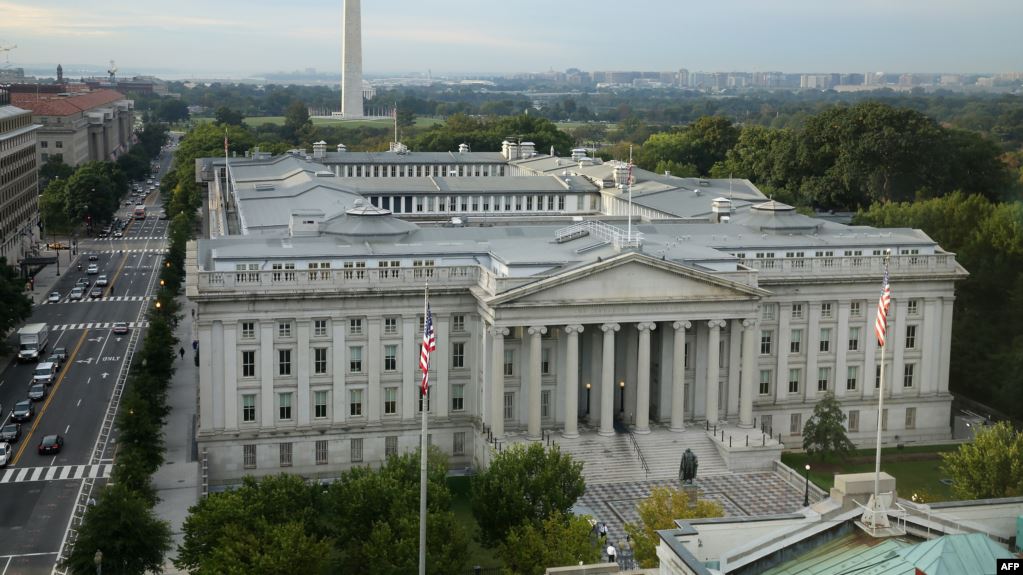Facts About the Caesar Act!
Akram Bunni/Asharq Al Awsat/June 12/2020
حقائق حول «قانون قيصر»!
أكرم البني/الشرق الأوسط/12 حزيران/2020
بعيداً عن المبالغة والاندفاع إلى حد اعتبار «قانون قيصر» بمثابة إعلان حرب لإطاحة النظام السوري، وبعيداً عن التقزيم والاستهتار بتأثير هذا القانون على نظام منهك ومأزوم اقتصادياً وسياسياً، واعتاد ألا يقيم وزناً للعقوبات، ثمة خمس حقائق تستحق الوقوف عندها لفهم حدود هذا القانون، وما يثار عن أسبابه ونتائجه.
الحقيقة الأولى، هي الدور الجديد والمثابر الذي لعبته الجالية السورية في الولايات المتحدة، على اختلاف مكوناتها، لنصرة هذا القانون، بدءاً بمساهمتها في صياغته والترويج له قبل أكثر من ثلاث سنوات، حتى إقراره، منذ شهور، في مجلسي النواب والشيوخ الأميركيين؛ حيث لم يبخل أبناؤها من فتيات وفتيان عانوا الأمرين من اضطهاد السلطة أو شخصيات سورية نافذة ذات مكانة في الحياة الأميركية، يدعمهم عدد غير قليل من منظمات المجتمع المدني الأميركية – السورية، لم يبخلوا في بذل المال والوقت والجهد لإشهار مشروعية هذا القانون، متوسلين الصور الفظيعة والمرعبة التي سُربت لآلاف المعتقلين السوريين الذين قضوا تحت تعذيب وحشي في سجون ومعتقلات النظام، ثم دعمها بقرائن وجرائم جديدة ارتُكبت بحق المدنيين السوريين، إلى أن تمكنوا من حفز مزيد من المؤيدين له في الهيئات التشريعية والتنفيذية الأميركية، الأمر الذي شكَّل فاجعة ومفاجأة لنظام يعتقد بأنه لا يزال بمنأى عن هذا المستوى من فتح النار الأميركية عليه، ولا يقيم وزناً لأولئك الذين شرَّدهم في شتى بقاع الأرض، بأنهم قادرون على المبادرة وتشكيل مركز قوة مؤثر في مواقف وسياسات الحكومات الغربية، لمساندة أهلهم ووطنهم.
الحقيقة الثانية، هي القيمة الوازنة لنصرة العدالة؛ حين يمنح «قانون قيصر» سلطات واسعة لوزارة الخارجية الأميركية، من أجل دعم المؤسسات التي تقوم بجمع الأدلة، وتتابع الملاحقات القضائية، ضد من ارتكبوا جرائم حرب في سوريا، محفوفاً بمطالبة صريحة بوقف الاعتقالات وإطلاق سراح السجناء، وكشف مصير المفقودين، وتمكين مراقبين دوليين من إجراء جولات في المعتقلات والسجون السورية. ولعل الإشارة إلى أن مثل هذه الجرائم ضد الإنسانية لا تموت ولا تخضع لمبدأ التقادم، تضع كافة المرتكبين، مهما طال الزمن، تحت سيف المساءلة والمحاسبة، وتنذرهم بأنهم مهما تمادوا في غيهم وجبروتهم، وحاولوا إخفاء جرائمهم، فلا بد من أن يخضعوا للعقاب، ويحصدوا ما زرعوه من آثام، ليبدو الأمر كأنه استمرار لجهود حقوقيين سوريين تعاونوا مع مؤسسات قضائية أوروبية، في ألمانيا وفرنسا والنمسا، لمتابعة ومحاكمة مرتكبي جرائم ضد الإنسانية في سوريا، وإنزال القصاص بمن مارسوا التعذيب والاغتصاب والقتل بحق المدنيين.
الحقيقة الثالثة، أن هذا القانون يحبط بصورة حاسمة شهية السلطة لإعادة الإعمار بعد ادعائها الانتصار، ويجهض تالياً مختلف الخطط والمشروعات التي كانت تعد على نار حامية، من قبل مستثمرين سوريين أو غير سوريين، ومن شركات أوروبية وأميركية وصينية وروسية وإيرانية، وضعت نصب أعينها تقاسم ملف إعادة الإعمار؛ حيث إن عقوبات «قانون قيصر» تطال كل الشخصيات والمؤسسات الأجنبية التي تتطلع لتمكين النظام أو أي جهة تقدم دعماً مالياً أو تقنياً أو بضائع، أو تنخرط بصفقات مع السلطة السورية لتساعدها في استعادة سيطرتها على البلاد والعباد، هذا فضلاً عن أنه يوجه تحذيراً لدول عديدة نشطت في الآونة الأخيرة للتطبيع السياسي والدبلوماسي مع النظام السوري، كالمجر وقبرص وإيطاليا، بما في ذلك ردع انفتاح السلطة اللبنانية على حكام دمشق، وتعميق أزمتها بحكم التداخل بين الاقتصادين، وتراجع رهان الرساميل اللبنانية على المساهمة في إعادة إعمار سوريا.
الحقيقة الرابعة: يساهم «قانون قيصر» في تفعيل الدور الأميركي في الملف السوري، بعد قرارات متعجلة للبيت الأبيض بتركه لمصيره، والانسحاب من تبعاته، ليغدو هذا القانون اليوم أشبه بورقة ضغط بيد واشنطن ضد التفرد الروسي، وللمشاركة في رسم المستقبل السوري، وما يزيد الأمر وضوحاً عودة القوات الأميركية لتثبيت مواقعها في شرق سوريا وشمالها، فارضة استمرار وجود التحالف الدولي بقيادتها في شرق الفرات، واستمرار سيطرتها على الموارد الاستراتيجية من نفط وغاز، وكأنها تخطط للبقاء هناك فترة طويلة الأمد.
وإذ نعترف بأن الإدارة الأميركية قد تلكأت كثيراً في حماية المدنيين السوريين، وأنها أهملت وتنصلت من «قانون قيصر» الذي صيغ في عهد الرئيس أوباما، مثلما تنصلت وأهملت الخط الأحمر الشهير الذي أنذرت فيه النظام السوري برد حاسم، في حال تكرار استخدام السلاح الكيماوي، نعترف أيضاً بأن مثل هذا القانون لم تتبنَّه القيادة الأميركية لدوافع إنسانية أو أخلاقية فقط؛ بل خضع أساساً لحسابات المصالح ولغايات سياسية، بدليل أنه منح الرئيس الأميركي هامشاً من المناورة في تطبيقه، وحتى تجميده في حال وجد جدية من قبل المتحكمين في الوضع السوري في التعاطي مع الحل السياسي، تاركاً الباب مفتوحاً لتمرير تسوية للصراع السوري وفق مقررات جنيف، تحاصر النفوذ الإيراني، وتضمن لواشنطن حصة وازنة فيها.
الحقيقة الخامسة: صحيح أن عقوبات «قانون قيصر» لا بد من أن تنعكس بمزيد من الضرر والأذى للشعب السوري المتضرر أصلاً من قهر السلطة القائمة وفسادها، وصحيح أنها لن تكون مؤذية كثيراً لنظام لا توجد صلات اقتصادية أو مالية مباشرة بينه وبين واشنطن، ولا يخجل وحاشيته من التنعم بحياة الرخاء والرفاهية، وتحميل الدول الغربية مسؤولية تجويع السوريين وإفقارهم؛ لكن الصحيح أيضاً أن تداعيات هذا القانون سوف تضعف بلا شك المصادر المتنوعة التي كانت تساعد أهل الحكم في الالتفاف على مختلف العقوبات التي اتخذت ضدهم، كما تضعف من قدراتهم على إعادة إنتاج قاعدتهم الاجتماعية، ولملمة المخلفات السلبية لحربهم الدموية، ويرجح أن تساهم في تشديد التوتر والخلاف بين مراكز القوى السلطوية، في ظل تجميد إعادة الإعمار، وما تشهده الليرة السورية من تدهور، وأحد وجوهه تنامي الخلافات والاتهامات بين رأس النظام ورامي مخلوف، هذا عداكم عن أنها قد تشجع غالبية السوريين الجوعى والمنكوبين على التمرد، وتحفز هممهم للوقوف في وجه نظام حكم أوصلهم إلى هذا الدرك من الفقر والعوز، وربما تكون أخبار عودة المظاهرات السلمية المطالبة بإسقاط النظام في مدينتي السويداء ودرعا، هي بداية الغيث.
Facts About the Caesar Act!
Akram Bunni/Asharq Al Awsat/June 12/2020
Beyond the exaggeration that the Caesar Act is like a declaration of war to overthrow the Syrian regime and beyond undermining the implications this Act will have on an exhausted regime that is in an economic and political crisis, while always undermining the impact of sanctions, five facts deserve reflection to understand the limits and implications of this law.
The first fact is the new and persistent role that the diverse Syrian diaspora in the United States had played to push for this law. This includes formulating and lobbying for it for over three years until it was passed a few months ago in both the House of Representatives and Congress. The Syrian people, both men and women, have suffered the aggression of the regime or influential Syrian figures in US life while only being supported by a few US-Syrian non-governmental organizations which spent a lot of money, time, and effort to fight for this law. They had to resort to the grotesque and horrifying images that were leaked of thousands of Syrian detainees who died under torture in the regime’s prisons and detention camps. They then backed these images with evidence and by citing new crimes that were committed against Syrian civilians to garner more supporters in US legislative and executive bodies. This surprised the regime, which still believes that it does not deserve this kind of aggression from the US and gives no weight to those whom it displaced around the globe and undermines their capacity to form a center of power and influence in the positions and policies of western governments to support their people and nation.
The second fact is the added value of fighting for justice. The Caesar Act provides the US Department of State with vast powers to support institutions that gather evidence and follow legal prosecutions against those who committed war crimes in Syria with an explicit demand to cease all arrests, release prisoners, reveal the fate of those missing, and enabling international monitors to visit and evaluate Syrian detention camps and prisons. It is worth noting that such crimes against humanity do not die out and are not subject to the statute of limitations; it puts all those incriminated, however long it takes, under questioning and holds them accountable, telling them that however long their transgressions and tyranny and however much they try to conceal their crimes, they will be punished and will reap what they have sown. This compels Syrian rights activists who have cooperated with European judicial institutions in Germany, France, and Austria to follow up and prosecute war criminals in Syria and to punish those who tortured, raped, and killed civilians.
The third fact is that this Act definitively frustrates the regime’s appetite for reconstruction after claiming victory and aborts plans and projects with Syrian and non-Syrian investors, including European, American, Chinese, Russian and Iranian companies that want to split the reconstruction project. The sanctions that the Caesar Act issues reach all foreign institutions and figures that are seeking to enable the regime or anybody that provides financial or technical support or even goods to the regime; it also implicates anyone who strikes a deal with the Syrian regime to help restore its rule over the country and its people. Additionally, it sends a warning to many countries that have recently tried to normalize political and diplomatic relations with the Syrian regime such as Hungary, Cyprus, and Italy, and prevents the Lebanese authorities from re-establishing relations with the rulers in Damascus and risking deepening its economic crisis as a result of the intersection between their two economies and the withdrawal of Lebanese capital from the reconstruction project in Syria.
The fourth fact: The Caesar Act reactivates the US’s role in the Syrian issue after the White House’s hasty decisions to leave it be and withdraw from its implications, turning this Act today into a card in Washington’s hand against Russian hegemony and to partake in drawing the future of Syria. What makes things more clear is the return of US forces to East and North Syria, returning an international alliance led by the US east of the Euphrates, controlling strategic resources such as oil and gas, signaling an intention to stay there for a long time.
We admit that the US administration came very short in protecting Syrian civilians and had neglected and disavowed the Caesar Act that had been formulated under Obama’s term just like it neglected and disavowed the famous definitive response it warned the Syrian regime with, in case it used chemical weapons again. We also admit that this Act was not adopted by the US for humanitarian or moral reasons alone, but was also subject to a calculation of interests and a political agenda illustrated by the fact that the US president provided a margin for maneuvering around its implementation and even suspending it if he found that those in control in Syria were serious about finding a political solution, leaving the door open for a compromise over the Syrian struggle according to the outcomes of the Geneva Conference that limit Iran’s influence and guarantees a substantial share for Washington.
The fifth truth: The sanctions imposed by the Caesar Act will indeed be reflected in more damage and harm to the Syrian people who are already damaged by the oppression and corruption of the regime, and, indeed, it will not be too harmful to a regime that has no direct economic and financial links with Washington and whose leaders live in luxury while putting all of the responsibility for starving and impoverishing the Syrian people on western countries. However, the implications of this law will no doubt weaken the diverse sources of income that used to help those in power to maneuver around sanctions that were imposed on them. Additionally, it will weaken their capacity to reproduce their social base and to profit from the negative implications of their bloody war. It is likely to also contribute to heightening the tension and disagreement between different centers of power in light of the suspension of the reconstruction project and the free fall of the Syrian pound, one manifestation of which is the dispute between the head of the regime and Rami Makhlouf. It will also motivate the majority of Syrians who are hungry to rebel and push them to stand against this regime that has pushed them into poverty and neediness. Perhaps the news of the return of peaceful demonstrations demanding the overthrow of the regime in As-Suwayda and Daraa is only the tip of the iceberg.



















